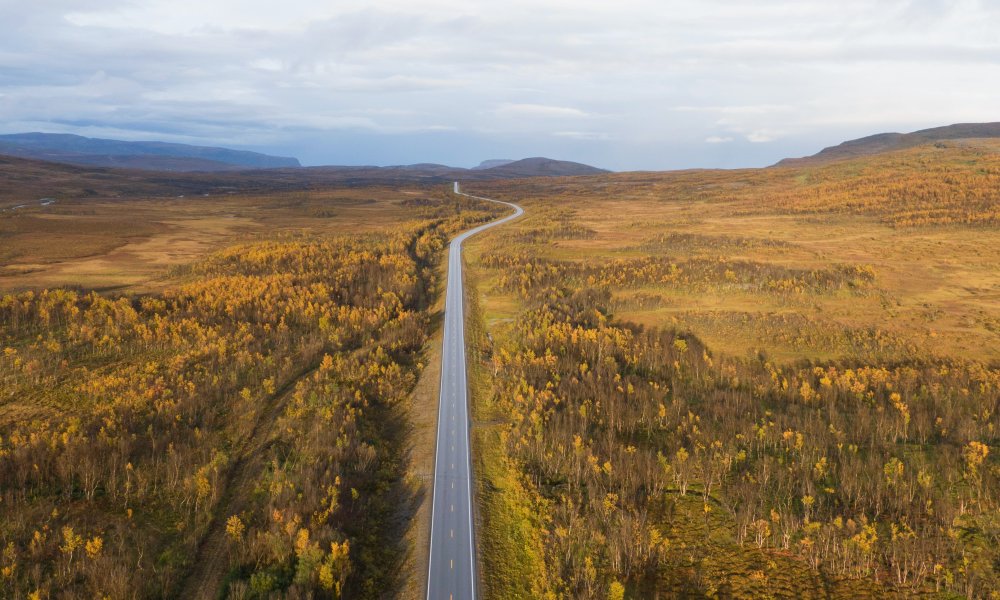Earlier this summer, I participated in the NordicSIF conference that gathered CEOs from leading sustainable investing institutions based in the Nordics. After two days of fruitful conversations on the environmental and social risks and opportunities of a just transition, an important sentiment coalesced:
We are steadily facing more complex systemic challenges, such as the wicked problems of climate and biodiversity, which require urgent transformation within some of the world's largest companies. Many investors share the same urgency and priorities. What naturally emerged from this is a feeling that we need more collaboration between the Nordic investors to bring about meaningful change on the path to a just transition.
The Nordics have long intrigued others around the world – often, academics and policymakers point to us as living proof that it is indeed possible to develop healthy economies with high levels of social well-being. Outsiders are often inspired by the Nordics: from the concept of "hygge" that the Danish and Norwegians have of adapting to make the cold northern winters more bearable; to the growing "aufguss" culture that draws from the Finnish passion for saunas; and Norwegians' cultural relationship to nature as a place for all, including a trust-based payment system in its broad network of wilderness hiking cabins where visitors themselves are responsible for noting the supplies they have used and then paying later.
Personally, I find it interesting how the German historian Bernd Brunner describes the Nordic nations. In his book "Extreme North" where he shares stories of how different people perceived the North, Brunner noted how, through trading valuable commodities, the Nordic people moved from being "fearsome barbarians" to "trustworthy merchants with whom good business could be done."
Nordic characteristics
It is exactly this aspect of the Nordic mindset that we should lean in to even more: we aim to be known as trustworthy agents that act ethically and do good business, to build mutually shared values. This positioning stems from certain Nordic characteristics:
First, Nordic countries are stable democracies that show consideration for the individual, in terms of fundamental rights and liberties, as well as providing social safety. We set a good example for what should be the baseline practice everywhere, and we are willing to share insights on how others can succeed using the same tactics.
Second, the Nordic countries are nature-dependent, for example, Sweden and Finland being reliant on forestry and Denmark on agriculture. These unique dependencies on nature, drive a shared sensibility among Nordic institutions regarding sustainability challenges we face today in the world of business and finance.
Third, there is a sense of trust between different Nordic governments and institutions that allows them to successfully collaborate, applying their power and influence to amplify their impact when tackling their shared concerns.
Shaping mutually beneficial solutions
We should aim to engage companies in the Nordics and around the world on sustainability, building on the context and values in which we have developed.
For example, in a situation where closing a coal power plant or mine could directly reduce emissions, but also wipe out scarce employment prospects for people in the local community, complex dialogues between many interest groups are necessary. It is important to not simply impose a position, but instead build a shared perspective together with partners and stakeholders.
Here the lengthy Nordic experience of engaging in broad multi-stakeholder dialogue to build sustainable business models is an asset. That has been reflected in our stance on the recent conflict in Norway, between the developers of a wind farm providing much-needed renewable energy, and the indigenous Sami people of the area, who have a right to preserve their traditional way of life. Here, as elsewhere, we insist that the companies we are invested in fulfil their responsibility to respect the indigenous people's rights and engage them constructively to together land on the most equitable solution.
Why does it matter?
One could ask: why does it matter to have a Nordic collaboration in engagement and dialogue? Here, I think this increased importance stems from two reasons.
As I mentioned earlier, it’s a natural responsibility, rooted in our culture. Yet, at least to some degree, a Nordic movement in active ownership is also a response to the developments outside the Nordics. Take the polarisation and politicisation of ESG investing, which is developing in the United States, for example. In the past months, things have reached a point where you can be applauded for your ESG integration in twenty states, while simultaneously being excluded in the other states. That's not what the world needs right now.
Thankfully, in the Nordics we have more of a consensus that ESG integration is good for business, society, and the environment. It's important to present a united front towards the companies we invest in on this critical aspect of the business. We must emphasise to our portfolio companies that as investors we do integrate sustainability and that we strongly believe it improves the long-term risk-return profile of our investments in them. Given that even some major global players in our sector are emphasising the importance of Nordic investors in leading sustainable investments, it's essential that we take ownership of our Nordic heritage, to ensure the best for current and future generations of stakeholders.







